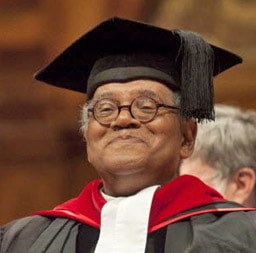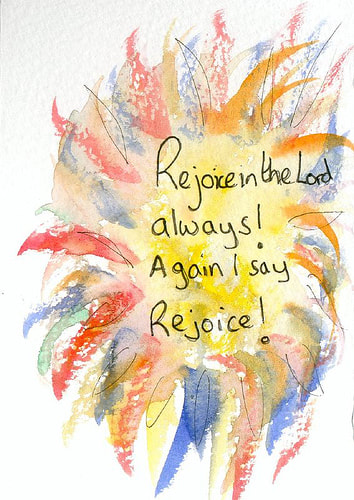|
“May the words of my mouth and the meditation of our hearts be acceptable to you, O Lord, my rock and my redeemer.” (Ps. 19:14) Preparing for Christmas can get confusing. It can get confusing because a lot of people can think of it mostly in terms of presents and decorating. Sharon and I still haven’t decorated our house for Christmas. We’ve got a wreath on the front door facing the road so we’re hoping that if we keep the blinds drawn really tight that no one will notice that we’re not yet prepared. But how do you prepare? The Season of Advent represents the long years during which the people of God waited for the coming of the Messiah, the Saviour. That expectation was still being preached by John the Baptist, and people were crowding around him, amazed at his message and his freedom. John feared no one, not even the king. He spoke with the assurance of God’s voice. People, we hear in today’s Gospel, were filled with expectation. They were hoping that John may be the long-awaited Messiah. They heard his thunderous pronouncements against the enemies of God. They heard that all who dared to stand in the way of God would be destroyed. John preached: “Even now the axe is lying at the root of the trees; every tree therefore that does not bear good fruit is cut down and thrown into the fire.” He warned the people gathered around him in the desert that the world was going to be changed. He spoke of those who would not repent, who would not come out into the desert wilderness, as the chaff that God would burn with unquenchable fire. These were the expectations of the coming of God that filled people’s heart and minds with excitement. They wanted God to intervene and right every wrong, and punish everyone who would not listen. The coming of the Messiah was a fearful day for others, but one filled with justice for God’s chosen ones. And this message was being preached right up until the time of Jesus. This is what the coming of the Saviour was supposed to mean. This is how people thought you prepared for Christmas. You waited for an angry God. But the Saviour came to us in a surprising package. He came to us in a humble, homeless child born in an animal’s stable to parents who were seeking to register as citizens of a foreign country. He came to us with the lights of the Advent Wreath that are now burning. The lights of hope and peace, and today, of love. Even amidst all of these wondrous promises, love stands out. Love is what most defines the coming of Christ. We prepare for Christmas by trying to ever better understand and practice this unexpected message of love. I was reading a book the other day ofa year worth of sermons by Rev. Peter Gomes. He was the chaplain of Harvard University’s Memorial Chapel. And during one of his Advent sermons, he complained about Advent ideas turning into Advent ideals. Ideals are perfect, and for Gomes that was the problem. Christmas revealed a Saviour who didn’t come to impose the perfect on us, like John the Baptist was expecting and people were filled with expectation that he was the Messiah. Christmas reveals a Saviour who brings wondrous ideas to us that we must choose to embrace and practice. Remember that John the Baptist right up until the revelation of Jesus was preaching the dramatic intervention of an angry God. Then Jesus comes as God’s perfect revelation and He does not force God upon any person. Jesus offers God as the better alternative. Jesus speaks of God’s love and asks us to love in turn. He died rather than turn away from this message. That was Jesus’ unexpected revelation and it was about ideas. It’s about us accepting those ideas and trying to live them and to change the world by them. The problem with turning ideas into ideals is that we too quickly pass over the work we need to do.
Think about the fact that Advent not only reminds us about the coming of Christmas. It talks about Jesus coming again at the end-time with power and glory, and that Jesus will force the world to accept the ways of God or else. That’s the same message of John the Baptist. All we did is postpone it from the coming of Jesus at Christmas to the coming of Jesus at some point in the future. That jumps right over the ideas of hope and peace and love, the three Advent candles already burning, and makes them into ideals that can only be forced upon us by God. This is the opposite of what Jesus’ humble birth and peaceful life and loving message reveal. It’s the opposite of Jesus inspiring us with the ideas of His gospel so that we work to make Christian love a reality, if even only in our own lives. Christmas is but a short few days away. This is a time to celebrate. But let’s not replace the reality of Christmas’ revelation of better ideas with the notion that God will do it all for us. Paul told his church in the old Greek city of Philippi: “Rejoice in the Lord always; again I will say, Rejoice. Let your gentleness be known to everyone. The Lord is near.” The Lord is near. That’s the wonder of Advent. And may His nearness inspire us to live the ideas that Jesus lived perfectly, and even among those ideas of gentleness, hope and peace, love stands alone. Love summarizes everything about Jesus. On this Advent Sunday of Christian love, may this idea inspire us to work at giving it a real chance in our lives and in our world. This is the revelation of God’s nearness that the Bethlehem birth reminds us of each year. May the fact that the Lord is near guide our preparations for Christmas as we strive to be a people of Christian love, and for this we pray in Jesus’ name. Amen.
0 Comments
Leave a Reply. |
NewsFaith, love and chitchat. Categories
All
Archives
June 2024
Follow
|
|
SERVICE TIMES
Sunday 9:30-10:30am Children Sunday School 9:30-10:30am Nursery care available during worship DONATE Make a single or recurring contribution by clicking here |
FOLLOW
|



 RSS Feed
RSS Feed
